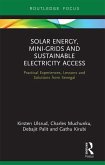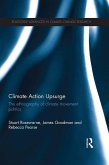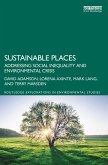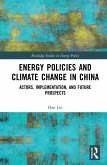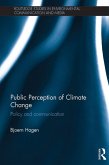Climate, Science and Society (eBook, PDF)
A Primer
Redaktion: Baker, Zeke; Zehr, Stephen; Vardy, Mark; Law, Tamar
0,00 €
0,00 €
inkl. MwSt.
Sofort per Download lieferbar

0 °P sammeln
0,00 €
Als Download kaufen

0,00 €
inkl. MwSt.
Sofort per Download lieferbar

0 °P sammeln
Jetzt verschenken
Alle Infos zum eBook verschenken
0,00 €
inkl. MwSt.
Sofort per Download lieferbar
Alle Infos zum eBook verschenken

0 °P sammeln
Climate, Science and Society (eBook, PDF)
A Primer
Redaktion: Baker, Zeke; Zehr, Stephen; Vardy, Mark; Law, Tamar
- Format: PDF
- Merkliste
- Auf die Merkliste
- Bewerten Bewerten
- Teilen
- Produkt teilen
- Produkterinnerung
- Produkterinnerung

Bitte loggen Sie sich zunächst in Ihr Kundenkonto ein oder registrieren Sie sich bei
bücher.de, um das eBook-Abo tolino select nutzen zu können.
Hier können Sie sich einloggen
Hier können Sie sich einloggen
Sie sind bereits eingeloggt. Klicken Sie auf 2. tolino select Abo, um fortzufahren.

Bitte loggen Sie sich zunächst in Ihr Kundenkonto ein oder registrieren Sie sich bei bücher.de, um das eBook-Abo tolino select nutzen zu können.
Climate, Science and Society: A Primer makes cutting edge research on climate change accessible to student readers.
- Geräte: PC
- ohne Kopierschutz
- eBook Hilfe
- Größe: 7.17MB
Andere Kunden interessierten sich auch für
![Solar Energy, Mini-grids and Sustainable Electricity Access (eBook, PDF) Solar Energy, Mini-grids and Sustainable Electricity Access (eBook, PDF)]() Kirsten UlsrudSolar Energy, Mini-grids and Sustainable Electricity Access (eBook, PDF)23,95 €
Kirsten UlsrudSolar Energy, Mini-grids and Sustainable Electricity Access (eBook, PDF)23,95 €![Climate Action Upsurge (eBook, PDF) Climate Action Upsurge (eBook, PDF)]() Stuart RosewarneClimate Action Upsurge (eBook, PDF)47,95 €
Stuart RosewarneClimate Action Upsurge (eBook, PDF)47,95 €![Nuclear Waste Politics (eBook, PDF) Nuclear Waste Politics (eBook, PDF)]() Matthew CottonNuclear Waste Politics (eBook, PDF)47,95 €
Matthew CottonNuclear Waste Politics (eBook, PDF)47,95 €![Energy Security and Cooperation in Eurasia (eBook, PDF) Energy Security and Cooperation in Eurasia (eBook, PDF)]() Ekaterina SvyatetsEnergy Security and Cooperation in Eurasia (eBook, PDF)34,95 €
Ekaterina SvyatetsEnergy Security and Cooperation in Eurasia (eBook, PDF)34,95 €![Sustainable Places (eBook, PDF) Sustainable Places (eBook, PDF)]() David AdamsonSustainable Places (eBook, PDF)39,95 €
David AdamsonSustainable Places (eBook, PDF)39,95 €![Energy Policies and Climate Change in China (eBook, PDF) Energy Policies and Climate Change in China (eBook, PDF)]() Han LinEnergy Policies and Climate Change in China (eBook, PDF)44,95 €
Han LinEnergy Policies and Climate Change in China (eBook, PDF)44,95 €![Public Perception of Climate Change (eBook, PDF) Public Perception of Climate Change (eBook, PDF)]() Bjoern HagenPublic Perception of Climate Change (eBook, PDF)51,95 €
Bjoern HagenPublic Perception of Climate Change (eBook, PDF)51,95 €-
-
-
Climate, Science and Society: A Primer makes cutting edge research on climate change accessible to student readers.
Dieser Download kann aus rechtlichen Gründen nur mit Rechnungsadresse in A, B, BG, CY, CZ, D, DK, EW, E, FIN, F, GR, HR, H, IRL, I, LT, L, LR, M, NL, PL, P, R, S, SLO, SK ausgeliefert werden.
Produktdetails
- Produktdetails
- Verlag: Taylor & Francis eBooks
- Seitenzahl: 342
- Erscheinungstermin: 13. Dezember 2023
- Englisch
- ISBN-13: 9781003828761
- Artikelnr.: 69585757
- Verlag: Taylor & Francis eBooks
- Seitenzahl: 342
- Erscheinungstermin: 13. Dezember 2023
- Englisch
- ISBN-13: 9781003828761
- Artikelnr.: 69585757
- Herstellerkennzeichnung Die Herstellerinformationen sind derzeit nicht verfügbar.
Zeke Baker is Assistant Professor of Sociology at Sonoma State University, USA. His research investigates how changes in climate knowledge relate to political dynamics, especially over the historical long term, in the United States and comparative contexts. Tamar Law is a PhD student at Cornell University in Development Studies and holds an MPhil in Human Environmental Geography from the University of Oxford. Her research in the United States and Southeast Asia examines the knowledge and land politics of climate adaptation and mitigation, centering questions of climate justice. Mark Vardy is a faculty member of the Criminology Department at Kwantlen Polytechnic University, Canada. He is interested in drawing from STS to contribute to discussions of climate justice in green criminology. Stephen Zehr is Professor Emeritus of Sociology at the University of Southern Indiana, USA. His past research focused on climate change scientific expertise and its representation in the media. He is currently researching maple syrup producers and their adaptation to technological changes, climate change, and labor supply and allegiances.
Table of Contents
List of Contributors
Acknowledgements
Introduction
Zeke Baker, Tamar Law, Mark Vardy, and Stephen Zehr
PART I: Climate Change Science as a Social Issue: Introduction
Zeke Baker
1: Future Times and Spaces: Tracing Objectivity, Scale, and Politics in the
Social Life of Climate Science
Zeke Baker
2: Meteorology, Climate Science, and Empire: Histories and Legacies
Martin Mahony
3: Rethinking Our Histories and Relations with Climate Change
Candis Callison
PART II: Theorizing Climate, Science, and Society: Introduction
Stephen Zehr
4: We Cannot Afford Not to Perform Constructionist Studies of Mainstream
Climate Science
Myanna Lahsen
5: Political Economies of Climate Science: Beyond Technological Villains
and Scientific Saviors
Zeke Baker
PART III: Media and Public Communication about Climate Change: Introduction
Stephen Zehr
6: Climate Change Communication: Simple, Right?
Stephen Zehr
7: Public Communication and Perceptions of Climate Change in Brazil
Eloisa Beling Loose and Anabela Carvalho
8: News and Social Media Imagery of Climate Change: Analyzing the Role and
Impact of Visuals in Public Communication
Mike S. Schäfer and Xiaoyue Yan
PART IV: NGOs, Civil Society, and Social Movements: Introduction
Mark Vardy
9: Non-Governmental Organizations and the Environmental Movement:
Challenges in Climate Change Framing
Steven Yearley
10: Expert Activists and NGOs: Understanding and Acting on Global Climate
Change
Adam Fleischmann
11: Skirting the Frame: Prepping and the Conservative Politics of Climate
Change
Allison Ford
PART V: Climate Justice: Introduction
Tamar Law
12: Postcards from Small Town India: Situated Climate Justice, Science, and
Technology
Ankit Bhardwaj
13: Solar Affordances and the Struggle for Climate Justice in Southwest
Asia
Kendra Kintzi
14: Upstream Engagement in the Era of Climate Change
Roopali Phadke
15: Climate Justice: Taking Back the Commons
Shangrila Joshi
PART VI: Climate Governance: Introduction
Mark Vardy
16: Climate Change as Ontological Unsettling: A View from the City
Hannah Knox
17: The IPCC as a Body of Expertise
Reiner Grundmann
18: Consensus, National Self-Interest, and the Shaping of Climate Knowledge
in IPCC Assessment Processes
Mark Vardy
19: Trust at the Climate Science-Policy Interface
Tiago Ribeiro Duarte
PART VII: Energy, Sustainability, and Sociotechnical Transitions:
Introduction
Stephen Zehr
20: Energy Transitions in a World of Polarized Politics
David J. Hess
21: Configuring Markets and Transactions for Energy System Transition: A
Role for STS Research
Daniel Breslau
22: The Role of Users in the Energy Transition
Marianne Ryghaug, Tomas Moe Skjølsvold, and Robert Næss
23: STS and the Design of Futures
Clark A. Miller
PART VIII: Climate Change Adaptation and Resilience: Introduction
Tamar Law
24: Climate Change Adaptation and Resilience: Sociotechnical and Knowledge
Dimensions
Tim Forsyth
25: Rethinking Climate Change Adaptation
Marcus Taylor
26: Farming in Climate Crisis: Agricultural Adaptation(s) in Central New
York State
Tamar Law
27: Climate Adaptation, Methodology, and the Case Study
Sarah E. Vaughn
PART IX: Art, Infrastructure, and Climate: Introduction
Mark Vardy
28: Amphibious Cities
Dominic Boyer
29: Aesthetic Encounters with the More-Than-Human
Désirée Förster
30: Averted Vision
Karolina Sobecka
PART X: Climate Engineering: Introduction
Zeke Baker
31: The Politics of Climate Engineering Research
Julia Schubert
32: The Intervention of Climate Science
Stefan Schäfer
33: Making the 1.5oC Aspirational Climate Target Tangible with Carbon
Dioxide Removal and Boundary Work
Anders Hansson
34: Boundary Work in Solar Geoengineering Assessment and Experiments
Sean Low
PART XI: Climate Futures: Introduction
Zeke Baker
35: Futuring in Climate Politics: Activism and the Politics of the
Imagination
Jeroen Oomen
36: The World Ocean and Climate Connectivities
Cymene Howe
37: From Controlling Global Mean Temperature to Caring for a Flourishing
Climate
Andy Stirling
Index
List of Contributors
Acknowledgements
Introduction
Zeke Baker, Tamar Law, Mark Vardy, and Stephen Zehr
PART I: Climate Change Science as a Social Issue: Introduction
Zeke Baker
1: Future Times and Spaces: Tracing Objectivity, Scale, and Politics in the
Social Life of Climate Science
Zeke Baker
2: Meteorology, Climate Science, and Empire: Histories and Legacies
Martin Mahony
3: Rethinking Our Histories and Relations with Climate Change
Candis Callison
PART II: Theorizing Climate, Science, and Society: Introduction
Stephen Zehr
4: We Cannot Afford Not to Perform Constructionist Studies of Mainstream
Climate Science
Myanna Lahsen
5: Political Economies of Climate Science: Beyond Technological Villains
and Scientific Saviors
Zeke Baker
PART III: Media and Public Communication about Climate Change: Introduction
Stephen Zehr
6: Climate Change Communication: Simple, Right?
Stephen Zehr
7: Public Communication and Perceptions of Climate Change in Brazil
Eloisa Beling Loose and Anabela Carvalho
8: News and Social Media Imagery of Climate Change: Analyzing the Role and
Impact of Visuals in Public Communication
Mike S. Schäfer and Xiaoyue Yan
PART IV: NGOs, Civil Society, and Social Movements: Introduction
Mark Vardy
9: Non-Governmental Organizations and the Environmental Movement:
Challenges in Climate Change Framing
Steven Yearley
10: Expert Activists and NGOs: Understanding and Acting on Global Climate
Change
Adam Fleischmann
11: Skirting the Frame: Prepping and the Conservative Politics of Climate
Change
Allison Ford
PART V: Climate Justice: Introduction
Tamar Law
12: Postcards from Small Town India: Situated Climate Justice, Science, and
Technology
Ankit Bhardwaj
13: Solar Affordances and the Struggle for Climate Justice in Southwest
Asia
Kendra Kintzi
14: Upstream Engagement in the Era of Climate Change
Roopali Phadke
15: Climate Justice: Taking Back the Commons
Shangrila Joshi
PART VI: Climate Governance: Introduction
Mark Vardy
16: Climate Change as Ontological Unsettling: A View from the City
Hannah Knox
17: The IPCC as a Body of Expertise
Reiner Grundmann
18: Consensus, National Self-Interest, and the Shaping of Climate Knowledge
in IPCC Assessment Processes
Mark Vardy
19: Trust at the Climate Science-Policy Interface
Tiago Ribeiro Duarte
PART VII: Energy, Sustainability, and Sociotechnical Transitions:
Introduction
Stephen Zehr
20: Energy Transitions in a World of Polarized Politics
David J. Hess
21: Configuring Markets and Transactions for Energy System Transition: A
Role for STS Research
Daniel Breslau
22: The Role of Users in the Energy Transition
Marianne Ryghaug, Tomas Moe Skjølsvold, and Robert Næss
23: STS and the Design of Futures
Clark A. Miller
PART VIII: Climate Change Adaptation and Resilience: Introduction
Tamar Law
24: Climate Change Adaptation and Resilience: Sociotechnical and Knowledge
Dimensions
Tim Forsyth
25: Rethinking Climate Change Adaptation
Marcus Taylor
26: Farming in Climate Crisis: Agricultural Adaptation(s) in Central New
York State
Tamar Law
27: Climate Adaptation, Methodology, and the Case Study
Sarah E. Vaughn
PART IX: Art, Infrastructure, and Climate: Introduction
Mark Vardy
28: Amphibious Cities
Dominic Boyer
29: Aesthetic Encounters with the More-Than-Human
Désirée Förster
30: Averted Vision
Karolina Sobecka
PART X: Climate Engineering: Introduction
Zeke Baker
31: The Politics of Climate Engineering Research
Julia Schubert
32: The Intervention of Climate Science
Stefan Schäfer
33: Making the 1.5oC Aspirational Climate Target Tangible with Carbon
Dioxide Removal and Boundary Work
Anders Hansson
34: Boundary Work in Solar Geoengineering Assessment and Experiments
Sean Low
PART XI: Climate Futures: Introduction
Zeke Baker
35: Futuring in Climate Politics: Activism and the Politics of the
Imagination
Jeroen Oomen
36: The World Ocean and Climate Connectivities
Cymene Howe
37: From Controlling Global Mean Temperature to Caring for a Flourishing
Climate
Andy Stirling
Index
Table of Contents
List of Contributors
Acknowledgements
Introduction
Zeke Baker, Tamar Law, Mark Vardy, and Stephen Zehr
PART I: Climate Change Science as a Social Issue: Introduction
Zeke Baker
1: Future Times and Spaces: Tracing Objectivity, Scale, and Politics in the
Social Life of Climate Science
Zeke Baker
2: Meteorology, Climate Science, and Empire: Histories and Legacies
Martin Mahony
3: Rethinking Our Histories and Relations with Climate Change
Candis Callison
PART II: Theorizing Climate, Science, and Society: Introduction
Stephen Zehr
4: We Cannot Afford Not to Perform Constructionist Studies of Mainstream
Climate Science
Myanna Lahsen
5: Political Economies of Climate Science: Beyond Technological Villains
and Scientific Saviors
Zeke Baker
PART III: Media and Public Communication about Climate Change: Introduction
Stephen Zehr
6: Climate Change Communication: Simple, Right?
Stephen Zehr
7: Public Communication and Perceptions of Climate Change in Brazil
Eloisa Beling Loose and Anabela Carvalho
8: News and Social Media Imagery of Climate Change: Analyzing the Role and
Impact of Visuals in Public Communication
Mike S. Schäfer and Xiaoyue Yan
PART IV: NGOs, Civil Society, and Social Movements: Introduction
Mark Vardy
9: Non-Governmental Organizations and the Environmental Movement:
Challenges in Climate Change Framing
Steven Yearley
10: Expert Activists and NGOs: Understanding and Acting on Global Climate
Change
Adam Fleischmann
11: Skirting the Frame: Prepping and the Conservative Politics of Climate
Change
Allison Ford
PART V: Climate Justice: Introduction
Tamar Law
12: Postcards from Small Town India: Situated Climate Justice, Science, and
Technology
Ankit Bhardwaj
13: Solar Affordances and the Struggle for Climate Justice in Southwest
Asia
Kendra Kintzi
14: Upstream Engagement in the Era of Climate Change
Roopali Phadke
15: Climate Justice: Taking Back the Commons
Shangrila Joshi
PART VI: Climate Governance: Introduction
Mark Vardy
16: Climate Change as Ontological Unsettling: A View from the City
Hannah Knox
17: The IPCC as a Body of Expertise
Reiner Grundmann
18: Consensus, National Self-Interest, and the Shaping of Climate Knowledge
in IPCC Assessment Processes
Mark Vardy
19: Trust at the Climate Science-Policy Interface
Tiago Ribeiro Duarte
PART VII: Energy, Sustainability, and Sociotechnical Transitions:
Introduction
Stephen Zehr
20: Energy Transitions in a World of Polarized Politics
David J. Hess
21: Configuring Markets and Transactions for Energy System Transition: A
Role for STS Research
Daniel Breslau
22: The Role of Users in the Energy Transition
Marianne Ryghaug, Tomas Moe Skjølsvold, and Robert Næss
23: STS and the Design of Futures
Clark A. Miller
PART VIII: Climate Change Adaptation and Resilience: Introduction
Tamar Law
24: Climate Change Adaptation and Resilience: Sociotechnical and Knowledge
Dimensions
Tim Forsyth
25: Rethinking Climate Change Adaptation
Marcus Taylor
26: Farming in Climate Crisis: Agricultural Adaptation(s) in Central New
York State
Tamar Law
27: Climate Adaptation, Methodology, and the Case Study
Sarah E. Vaughn
PART IX: Art, Infrastructure, and Climate: Introduction
Mark Vardy
28: Amphibious Cities
Dominic Boyer
29: Aesthetic Encounters with the More-Than-Human
Désirée Förster
30: Averted Vision
Karolina Sobecka
PART X: Climate Engineering: Introduction
Zeke Baker
31: The Politics of Climate Engineering Research
Julia Schubert
32: The Intervention of Climate Science
Stefan Schäfer
33: Making the 1.5oC Aspirational Climate Target Tangible with Carbon
Dioxide Removal and Boundary Work
Anders Hansson
34: Boundary Work in Solar Geoengineering Assessment and Experiments
Sean Low
PART XI: Climate Futures: Introduction
Zeke Baker
35: Futuring in Climate Politics: Activism and the Politics of the
Imagination
Jeroen Oomen
36: The World Ocean and Climate Connectivities
Cymene Howe
37: From Controlling Global Mean Temperature to Caring for a Flourishing
Climate
Andy Stirling
Index
List of Contributors
Acknowledgements
Introduction
Zeke Baker, Tamar Law, Mark Vardy, and Stephen Zehr
PART I: Climate Change Science as a Social Issue: Introduction
Zeke Baker
1: Future Times and Spaces: Tracing Objectivity, Scale, and Politics in the
Social Life of Climate Science
Zeke Baker
2: Meteorology, Climate Science, and Empire: Histories and Legacies
Martin Mahony
3: Rethinking Our Histories and Relations with Climate Change
Candis Callison
PART II: Theorizing Climate, Science, and Society: Introduction
Stephen Zehr
4: We Cannot Afford Not to Perform Constructionist Studies of Mainstream
Climate Science
Myanna Lahsen
5: Political Economies of Climate Science: Beyond Technological Villains
and Scientific Saviors
Zeke Baker
PART III: Media and Public Communication about Climate Change: Introduction
Stephen Zehr
6: Climate Change Communication: Simple, Right?
Stephen Zehr
7: Public Communication and Perceptions of Climate Change in Brazil
Eloisa Beling Loose and Anabela Carvalho
8: News and Social Media Imagery of Climate Change: Analyzing the Role and
Impact of Visuals in Public Communication
Mike S. Schäfer and Xiaoyue Yan
PART IV: NGOs, Civil Society, and Social Movements: Introduction
Mark Vardy
9: Non-Governmental Organizations and the Environmental Movement:
Challenges in Climate Change Framing
Steven Yearley
10: Expert Activists and NGOs: Understanding and Acting on Global Climate
Change
Adam Fleischmann
11: Skirting the Frame: Prepping and the Conservative Politics of Climate
Change
Allison Ford
PART V: Climate Justice: Introduction
Tamar Law
12: Postcards from Small Town India: Situated Climate Justice, Science, and
Technology
Ankit Bhardwaj
13: Solar Affordances and the Struggle for Climate Justice in Southwest
Asia
Kendra Kintzi
14: Upstream Engagement in the Era of Climate Change
Roopali Phadke
15: Climate Justice: Taking Back the Commons
Shangrila Joshi
PART VI: Climate Governance: Introduction
Mark Vardy
16: Climate Change as Ontological Unsettling: A View from the City
Hannah Knox
17: The IPCC as a Body of Expertise
Reiner Grundmann
18: Consensus, National Self-Interest, and the Shaping of Climate Knowledge
in IPCC Assessment Processes
Mark Vardy
19: Trust at the Climate Science-Policy Interface
Tiago Ribeiro Duarte
PART VII: Energy, Sustainability, and Sociotechnical Transitions:
Introduction
Stephen Zehr
20: Energy Transitions in a World of Polarized Politics
David J. Hess
21: Configuring Markets and Transactions for Energy System Transition: A
Role for STS Research
Daniel Breslau
22: The Role of Users in the Energy Transition
Marianne Ryghaug, Tomas Moe Skjølsvold, and Robert Næss
23: STS and the Design of Futures
Clark A. Miller
PART VIII: Climate Change Adaptation and Resilience: Introduction
Tamar Law
24: Climate Change Adaptation and Resilience: Sociotechnical and Knowledge
Dimensions
Tim Forsyth
25: Rethinking Climate Change Adaptation
Marcus Taylor
26: Farming in Climate Crisis: Agricultural Adaptation(s) in Central New
York State
Tamar Law
27: Climate Adaptation, Methodology, and the Case Study
Sarah E. Vaughn
PART IX: Art, Infrastructure, and Climate: Introduction
Mark Vardy
28: Amphibious Cities
Dominic Boyer
29: Aesthetic Encounters with the More-Than-Human
Désirée Förster
30: Averted Vision
Karolina Sobecka
PART X: Climate Engineering: Introduction
Zeke Baker
31: The Politics of Climate Engineering Research
Julia Schubert
32: The Intervention of Climate Science
Stefan Schäfer
33: Making the 1.5oC Aspirational Climate Target Tangible with Carbon
Dioxide Removal and Boundary Work
Anders Hansson
34: Boundary Work in Solar Geoengineering Assessment and Experiments
Sean Low
PART XI: Climate Futures: Introduction
Zeke Baker
35: Futuring in Climate Politics: Activism and the Politics of the
Imagination
Jeroen Oomen
36: The World Ocean and Climate Connectivities
Cymene Howe
37: From Controlling Global Mean Temperature to Caring for a Flourishing
Climate
Andy Stirling
Index

